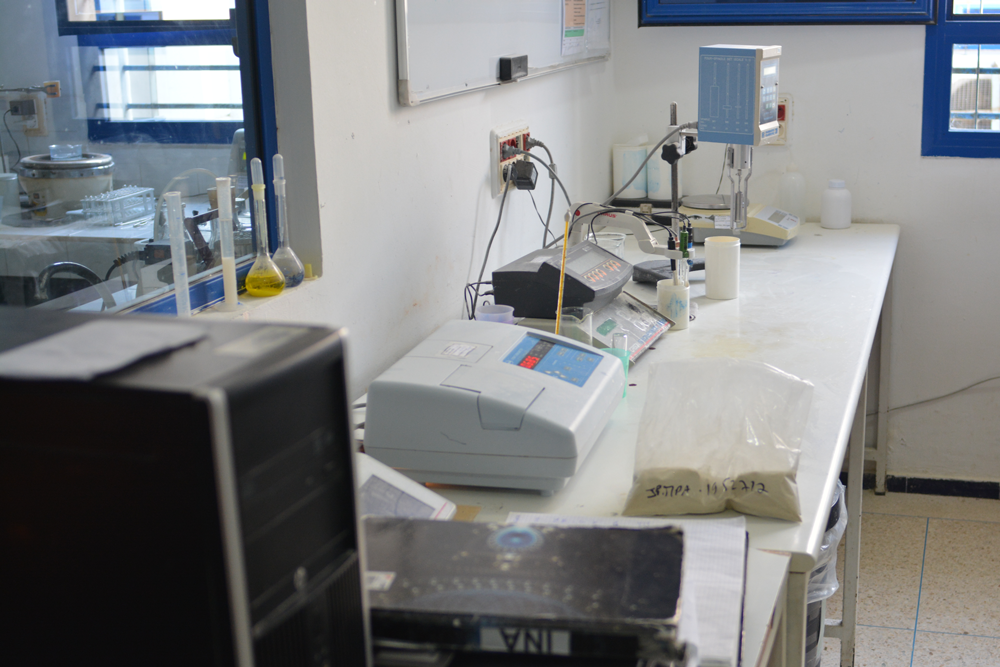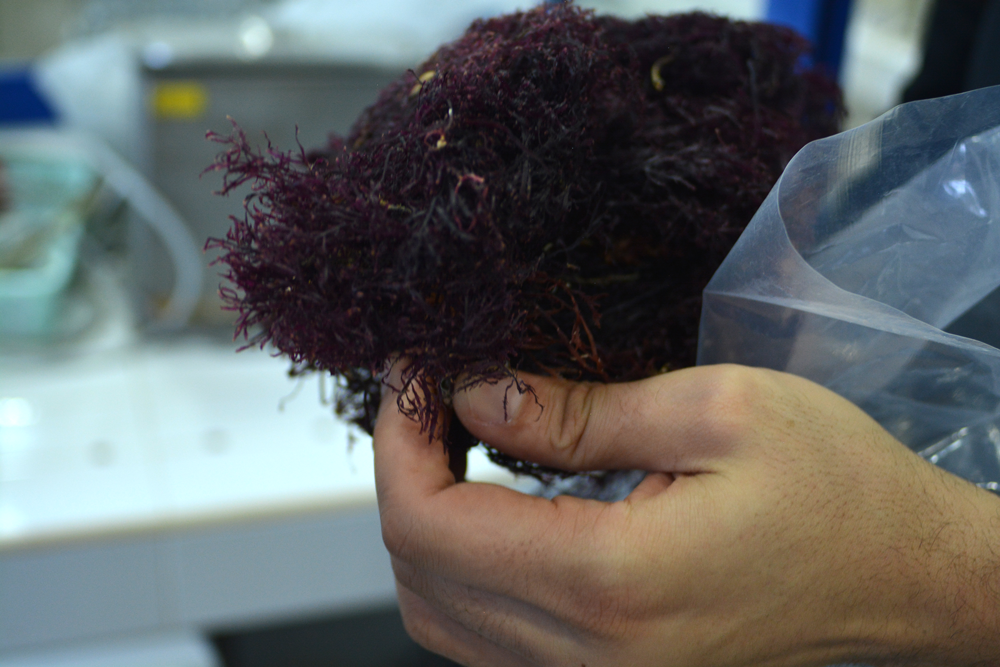This documentation is part of research conducted while on residency in Morocco in early 2020, visiting key sites of the agar supply chain. This research was undertaken to investigate the sustainability of agar and potential issues surrounding its use as a material. While in Morocco, I met with marine experts, agricultural scientists, people developing aquaculture initiatives, local harvesters and people working at the only agar processing plant in Africa, Setexam. This processing plant produces more than half the world’s bacteriological agar and a significant amount of food and other technical agars.


INDEPENDENT HARVESTING
Taken in Sidi Bourzid on the coast of Morocco, these images show local harvesters, often women, collecting red algae from the ocean. Harvesters also dive to collect seaweed, however this practice is now regulated and requires sites for harvest be inspected by an independent marine biologist and permits be issued from the Government linked to licences issued to processing partners. These measures were put in place in the 2010s to combat over-harvesting and maintain sustainable practice.


![]()
LOCAL PROCESSING
Seaweed collected by harvesters is dried and shaken out to remove losse sand and salt, then sold by weight to the processing plant. In Africa, the only processing plant is Setexam, which is a third-generation family business started by a marine biologist couple who recognised the value of the local seaweeds and began the company in 1960 – a catalyst for the industry to develop.
Agar is processed simply through a mostly water and heat based extraction process to refine the gellifying polymers. Laboratory scientists test for purity and adjust to highly specified needs of their customers in industries ranging from biomedical research to fast moving consumer goods.
Projects are underway to begin farming projects to grow red algae from the gracilaria genus, which can be processed into agar for use in food and cosmetics. Gelidium, the other main type of red algae that grows off Morocco, which is prized for its superior gel strength and used for high-grade bacteriological agar – and known as ‘red gold’ is unable to be farmed.
![]()
SUSTAINABLE CONTROLS
In 2014, Setexam, the only agar processing plant in Africa, led an initiative with the Moroccan Government which saw the introduction of the country’s first controls to sustainably protect seaweed harvesting. Before any below-water harvesting takes place, an independent marine biologist must inspect the plants and provide approval that harvesting will be sustainable for future growth.
These controls sparked short-term global shortages of bacteriological agar, which were reported in scientific literature. Long-term though, they are securing the ecosystems and industry alike for the future.

I acknowledge the Wurundjeri People as the traditional custodians of the land on which I live and work, whose cultures are among the oldest living cultures in human history and who have one of the longest creative human histories on Earth. I pay respect to Elders of the community - past, present and emerging - and extend this respect to all First Nations people. It is a privilege that we can name these people and celebrate this sixty-thousand year history of their culture. I recognise that sovereignty was never ceded. My country has a rich history and its Indigenous peoples have unique cultural and spiritual relationships to the land, waters and seas.
Copyright Jessie French 2020


